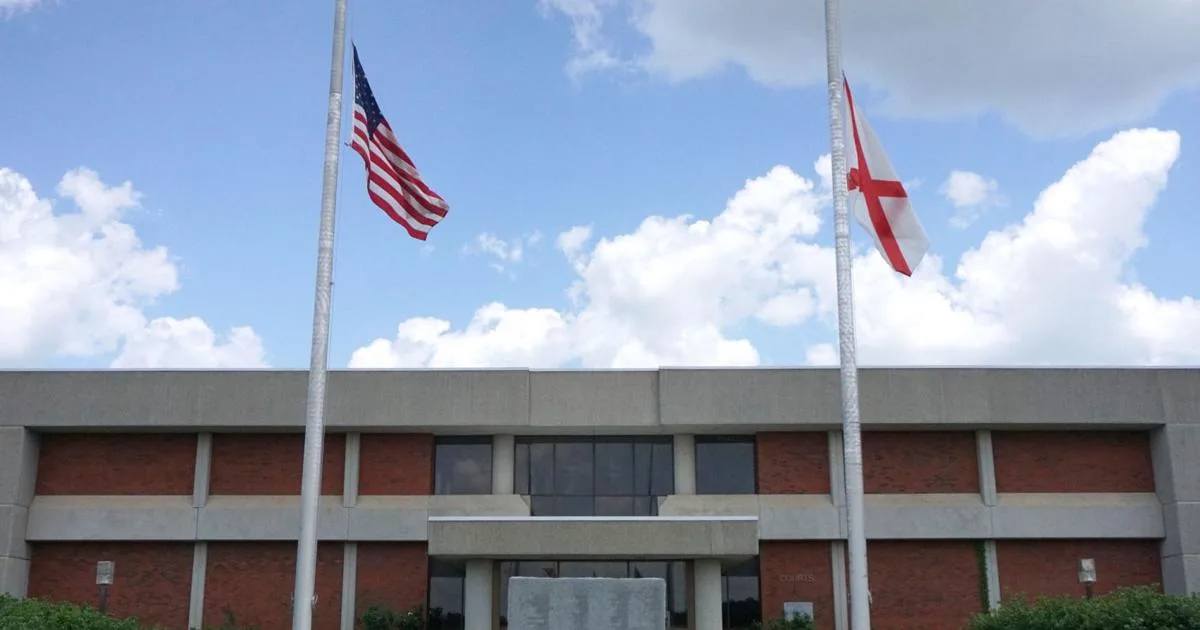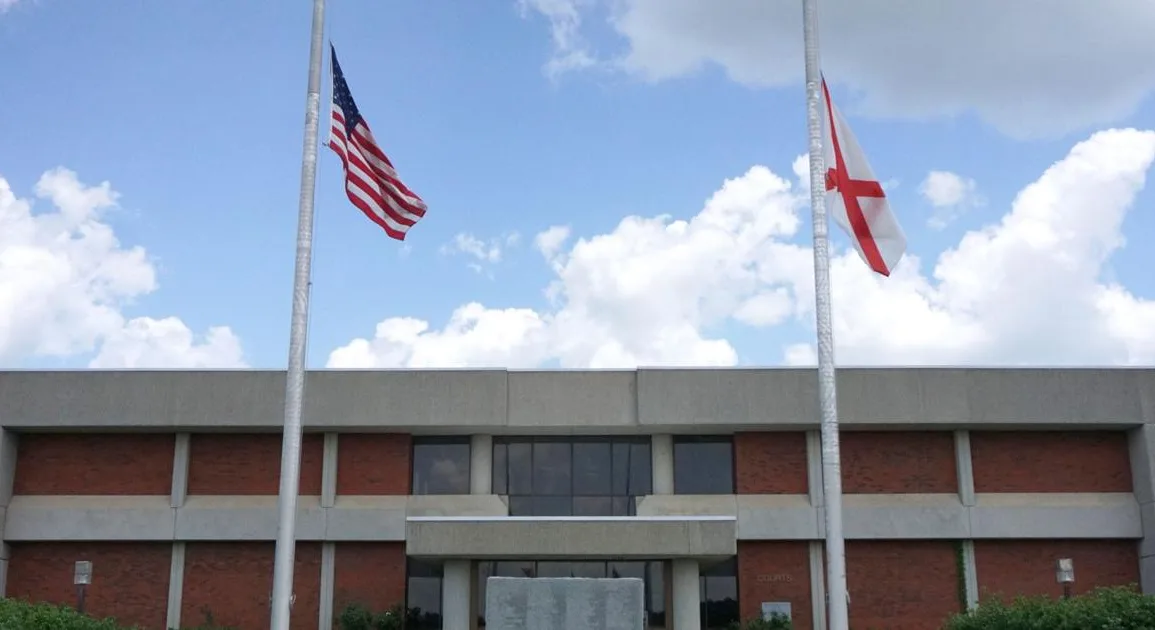
A handful of criminal cases involving individuals under the age of 21 has brought Alabama’s youthful offender status to the forefront of the public eye in recent months.
Some in the public see youthful offender status as being unequally applied across populations. Others see it as a way to give young people a second chance.
Some, such as Johnston Taylor, have tried to get youthful offender on more than one occasion. Taylor was originally given youthful offender after causing a high speed car accident in 2019 that killed Rod and Paula Bramblett. Taylor was recently denied a second attempt at youthful offender status after being arrested on six charges of possession of child pornography in 2022.
Others, such as three of the suspects in the Dadeville mass shooting, have tried for youthful offender status despite the severity of their accused crimes. However, a youthful offender hearing has not been held yet for them.
People are also reading…
The youthful offender status has been a part of the Alabama Code since at least 1975. That’s when the current state code was enshrined into law.
According to Justia.com, Youthful Offender was first approved in Alabama on Feb 10, 1972.
Courtney Waid, a criminologist and head of the Criminal Justice Department at Auburn University at Montgomery, said the youthful offender program brings elements of the juvenile justice process to the adult court system. Waid said it essentially reduces the impact of penalties for adults under 21 and instead brings in elements of rehabilitation.
“It is trying to incorporate some of that traditional perspective of juvenile justice and reducing what we see with stigma in extreme criminal penalties,” Waid said. “The idea is that they are not going to be institutionalized for long periods of time.”
Youthful offender status basically allows someone “in their minority,” as the Alabama Code puts it, to plead guilty to their crime, gain a lighter sentence, and have record of the crime permanently sealed from the public.
If someone between the ages of 18 and 21 is charged with a crime, they can apply for youthful offender status. They would then go through a court examination. Things such as past criminal history, work and civic history, church and school, and how they reacted when arrested can all come into play.
If the judge then feels the circumstances warrant youthful offender status, it can then be offered to the offender.
The offender would plead guilty and waive the right to a trial by jury. A sentence is then handed down depending on the charge, and the offender’s record is then sealed. The sentence would be no more than three year’s incarceration, plus probation and fines for a felony. A misdemeanor sentencing would depend on the underlying charges.
To go through the regular adult court system would mean stiffer penalties, such as longer incarcerations times and an open criminal record.
Andrew Stanley, an attorney at Samford and Denson LLP in Opelika, views the youthful offender program as a positive way to help young adults move forward with their lives after trial.
“At the end of the day your file is sealed,” Stanley said. “You’re not convicted of a crime. So it protects someone under the age of 21.”
Youthful offender status, however, has the potential to be abused. It can potentially be seen as an easy out for repeat offenders or those who have committed violent crimes against others.
Just because someone applies for youthful offender though, doesn’t automatically mean they will get it. A judge has the ability to reject youthful offender status.
“A judge might say ‘that person is a danger and I think needs to be behind bars for a longer period of time,” Waid said. “That decision to grant it rests with the judge.”
Stanley agrees with Waid’s sentiment. He said he’s had clients with no criminal history who were high school graduates and gainfully employed but still didn’t get youthful offender status. He said that based on the criminal allegations, it can still be denied.
Stanley added that it was also unlikely for someone to get youthful offender status more than once. Repeat offenders can apply more than once.
“Usually what happens is if you’ve been granted youthful offender in the past, the rule of thumb is if you can’t get it again,” Stanley said.
People can apply for youthful offender status even if their bond has been revoked in cases such as Aniah’s Law. However, again, Stanley does not think it is likely for them to get it in these cases.
“They still have the ability to seek and request youthful offender treatment,” Stanley said. “If it’s an Aniah’s Law case, obviously it’s going to be a Class A felony and is primarily going to be a violent felony. I believe the trend, based upon my experiences, is that that person would not get youthful offender treatment.”
Waid also indicated that someone who has had bond revoked due to Aniah’s Law wouldn’t really be a candidate for youthful offender status. She says the point of the youthful offender program is to allow people to be rehabilitated.
“There’s too many red flags,” Waid said. “Human trafficking, murder, it’s so egregious that we have to essentially incapacitate that offender. We’re trying to deter people from doing this. We’re not at the point where we can envision what’s going to happen with rehabilitation.”
The youthful offender program is not without its detractors. There are those in the community who see it as being unequally applied across demographics.
Oscar Penn with Concerned Citizens of Opelika takes a dimmer view on the program. He’s an elected executive board member of Lee County NAACP. He says he does not feel like youthful offender status has been equal among the bBack and white populations in Alabama. He said he feels young white offenders get a slap on the wrist where young Black offenders get 25 years to life for the same crime.
“Over the years, the youthful offender law has, I would say, not served justice to our community,” Penn said. “It’s not nothing that’s no surprise… young Black men don’t get the same treatment under the youthful offender law as young white guys do.”
He points directly to the Johnston Taylor case as an example.
“He killed these people, turned right around, got caught with drugs, the turned right around and got caught with child porno,” Penn said. “If that had been a young Black kid, he wouldn’t have gotten parole from the beginning. He wouldn’t have gotten bond.”
While Penn acknowledged the importance of the justice system— he says we do need it— he feels like young Black men just don’t get the same treatment under the system as young Black men.
Captain Tony Amerson with the Opelika Police Department, however, stands by the youthful offender program and police enforcement. While he acknowledges that more Black individuals are arrested than whites, he doesn’t see the issue as being because of race.
“From a police standpoint, we know we have to police a diverse community,” Amerson said. “We try to make sure that we base the law on the crime that is being committed not specifically the race of the person.”
Amerson said he felt the program was good for young Black people who were convicted of a crime. He considers the Opelika Municpal Court to be a second-chance court. He points back to socioeconomic factors and how they can lead young people to commit crimes in the first place. Amerson feels youthful offender gives young Black men and women a second chance to step out of negative surroundings even if they have committed a crime.
“Their mother may be on crack or may be an alcoholic. They didn’t ask for that, however, that’s the environment that they live in,” Amerson said. “If they’re living in that environment than there’s a greater chance that they become that environment. We as the government have to take that into consideration.”
Penn, however, remains skeptical.
“I don’t have anything against the judicial system. We need it, we need it very badly,” Penn said. “As for the youthful offender law, its not going to apply equally across the board in the white community as it should be in the Black community. With that being said, that is the absolute truth.”



